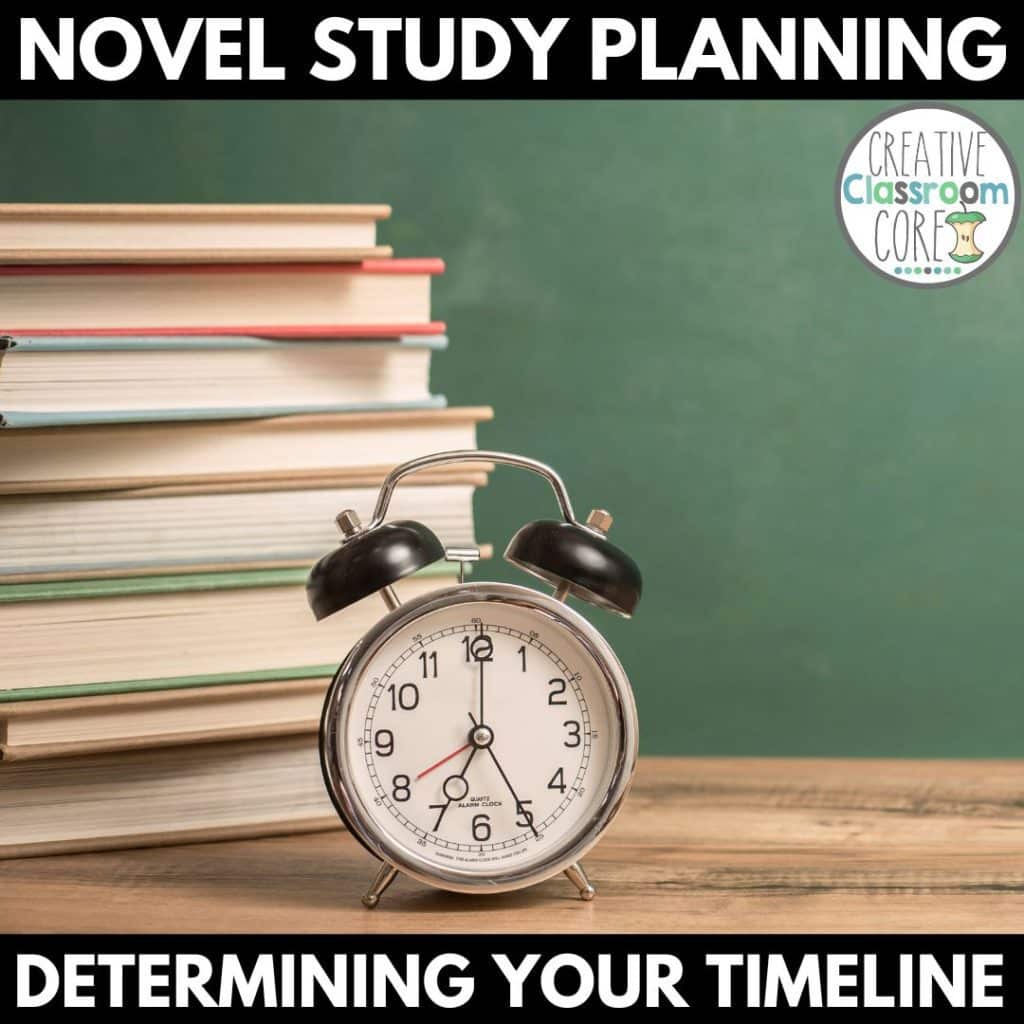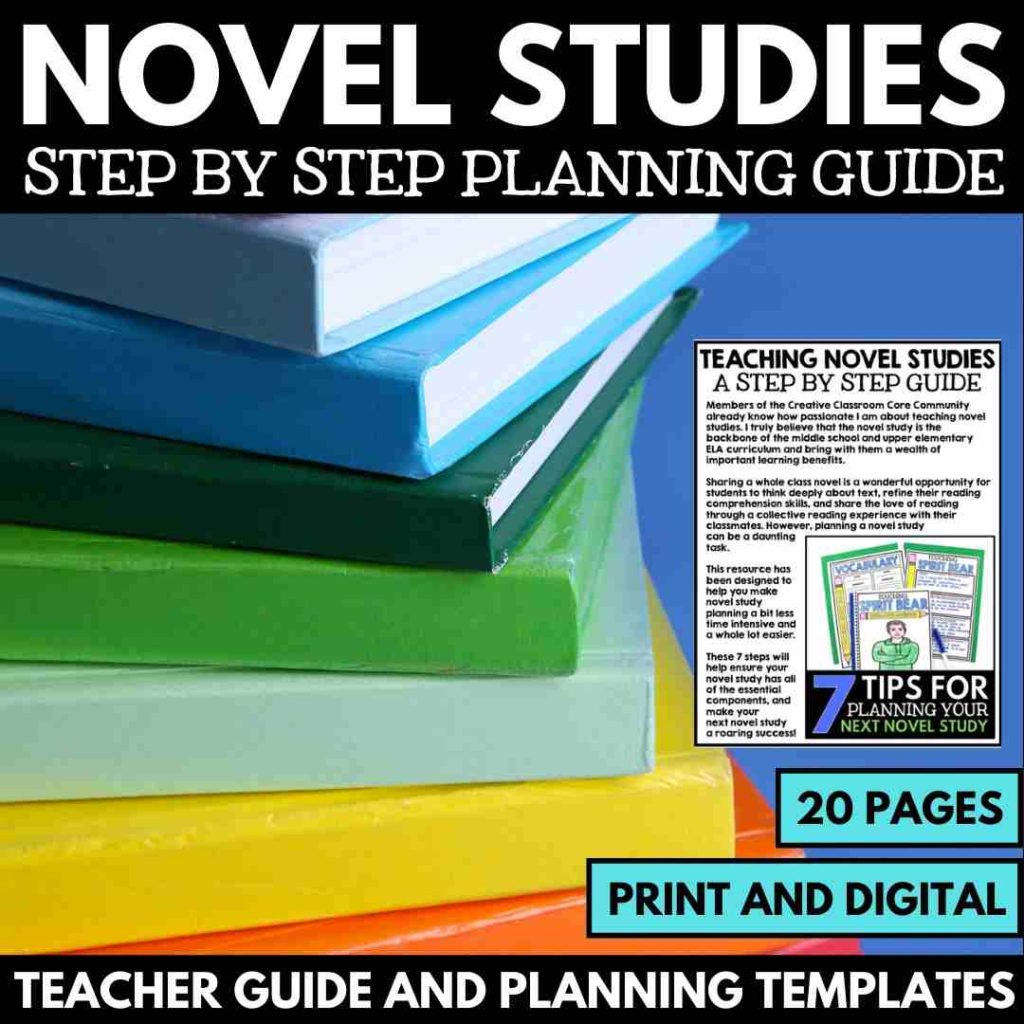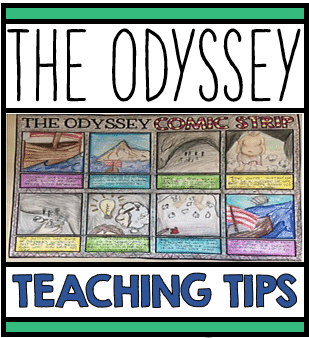Novel Study Planning Tips: Organizing your timeline
By MARISSA DESPINS Updated Sept 19, 2023
Novel study planning tips
Hello friends! Welcome back to the latest post in my series on novel study planning. In my previous posts we talked about what novel studies are, determining your purpose, and selecting your framework. Today’s post on novel study planning tips is all about organizing your timeline.
Looking for a FREE Step by Step Novel Study Planning Guide? Click on the image or button below to download the FREE guide!
For more information on teaching specific novels, you won’t want to miss our posts on teaching Because of Winn Dixie, Wonder, The Hunger Games, Charlie and the Chocolate Factory, and The Outsiders!
Novel Study Planning Tips: Organizing your timeline
When it comes to novel study planning tips, one of the most crucial aspects is determining how much time you want to allot for the unit. This decision will depend on several factors, including the pace at which you intend to move through the novel and your daily schedule.

It is important to remember that some novels may only require four weeks to teach, while others may take an entire quarter, depending on the complexity of the text and the amount of supplementary material you plan to include.
If you are struggling with choosing the perfect book for your next novel study, you won’t want to miss our lists of favorite middle school and upper elementary novels!
Novel study planning Tips: Whole class vs. independent reading
When deciding on your timeline, it’s important to consider how much work you plan to have students complete in class versus independently at home. Reading as a whole class typically takes longer than independent reading, so keep that in mind as you plan. Additionally, if you intend to supplement the unit with mini-lessons on topics such as historical context, different reading strategies, or in depth analysis of literary elements this will also impact your timeline.
Looking for ways to keep students engaged during an independent novel study? Check out list of tips and tricks for independent reading success!
Novel Study Planning Tips: Date selection
As you set up your timeline, it’s also crucial to plan ahead and mark off important dates. Don’t forget about half days or holidays, as they can throw off your plan if you’re not prepared. If you know ahead of time about things like fire drills or assemblies that take place during class times, be sure to make note of these as well.
Another important tip is to plan a buffer week to prepare for the unexpected. This extra week gives you the wiggle room you need in case of unexpected obstacles or interruptions to your ideal timeline. If you end up ahead of schedule, you can enjoy the extra time by giving students an additional day or two on a final project or incorporating a fun activity that didn’t make the initial plan.
Novel Study Planning Tips: divide up the book
Once you have established your timeline, you can move on to determining your reading assignments. Use your timeline as a foundation for chunking out the novel, accounting for both in-class and at-home reading. If you’re unsure how to divide the pages, start by dividing the total number of pages in the book by the number of weeks you plan to dedicate to reading. Then divide that number by the number of days you plan on reading each week, in class or at home. Don’t forget to adjust the number to match up with reasonable breaks in the text, such as chapters. This may mean that each chunk isn’t exactly the same number of pages, and that is totally ok.
After determining how many pages will be covered each day, in class or at home, you can denote which days will be designated for in-class reading. You can also mark which type of in-class reading you plan to do, such as whole class or independent reading. This level of detail might seem excessive, but it will make it easier for you to plan accompanying lessons and activities. Keep in mind that students can often comprehend text at a higher reading level if it is read aloud. If you have struggling readers in your group and plan on tackling a complex text, reading aloud may be a great option.
Timeline planning of both in-class and at-home reading will help you stay on track throughout the novel study, even if you need to adjust along the way. By keeping these tips in mind, you’ll be well on your way to a successful and enjoyable novel study experience for both you and your students.
Are you looking for more information on novel studies?
Check out these related blog posts below!
Novel Study Text Selection Tips
Building Novel Study Engagement
Benefits of Teaching Novel Studies
Hatchet Novel Study Activities
On the hunt for novel study activities?
Check out all of the 30 different COMPLETE novel studies created by Creative Classroom Core on TPT! See them all by clicking on the image below!
Interested in signing up for my email list?
If you are interested in signing up for my email list, you can do so by clicking on the link below. I periodically send out emails with free resources, teaching tips, and exclusive deals. Signing up will also give you immediate access to some of my best selling Interactive Notebook resources – foldable activities, graphic organizers, and other fun activities.








